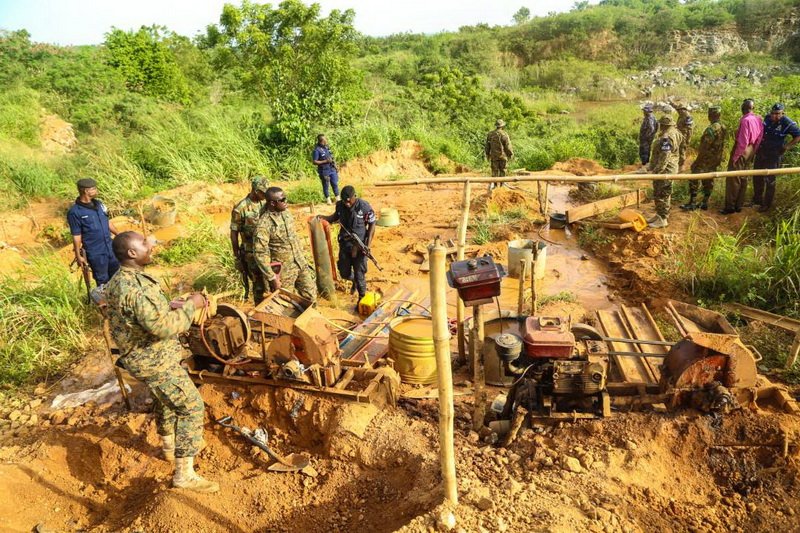Government has started the training of mining guards to monitor and enforce mining regulations along mining centres in the country, a former Chief Executive of the Minerals Commission has disclosed.
According to Benjamin Nii Ayi Aryee, the intention of the government is to train 600 guards for the mining job, but 200 of the guards have so far undergone the training.
Speaking to Francis Abban on the Morning Starr Thursday, Mr. NII Ayi said the trained guards will soon begin work to ensure enforcement of mining regulations in the country.
“Government has started the training of 200 mining guards, the intention is to get 600 guards but 200 have started. They have not started work but they have been trained and I believe they will start work soon”.
Meanwhile, government will on Friday 14 December 2018, announce a new policy framework for regularizing and reforming mining activities in Ghana.
The announcement comes twenty one (21) months after a ban was imposed on illegal, irresponsible as well as small scale mining activities in the country.
While some have speculated a lifting of the ban, government has been quick to correct that what will be announced is a new policy framework within which the over 3,000 newly trained former galamsey operators as well as thousands more who are interested in mining can operate legally.
Addressing the Sunday bi-weekly Press briefings in Takoradi, the Minister for Information Kojo Oppong Nkrumah said the announcement will outline the following;
– How validated and legal responsible miners can mine after the 15th of December
– Processes towards dredging and land reclamation in affected areas
– Institutional reforms within the mining regulatory agencies
– Legal reforms in the mining sector
– Efforts to avert a resurgence of illegal and irresponsible mining
“It is our expectation that stakeholders and the general public will continue to cooperate with authorities even as this new phase is rolled out” he said.
The ban was imposed in March 2017 when it was observed that small scale mining was being used as a cover for irresponsible mining as well as even illegal mining in many parts of the country. The practice fast led to a degradation of the environment affecting severely rivers and forest reserves. In some cases it even led to a contamination of agricultural products as a result of the absorption of dangerous chemicals used.
Source: Ghana/Starrfmonline.com/103.5FM




